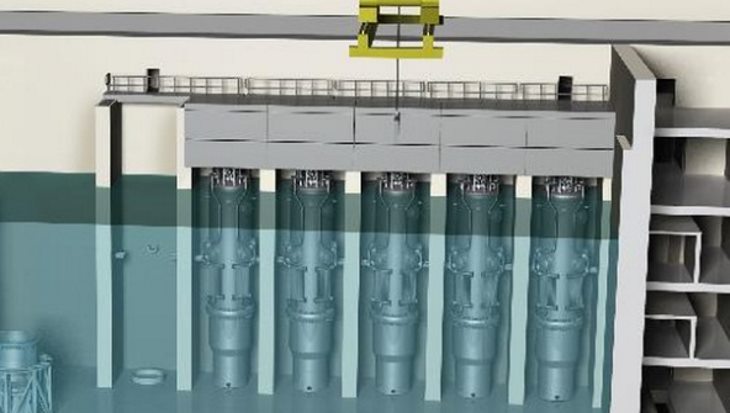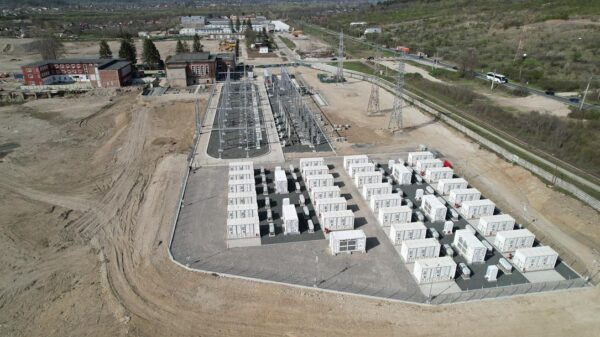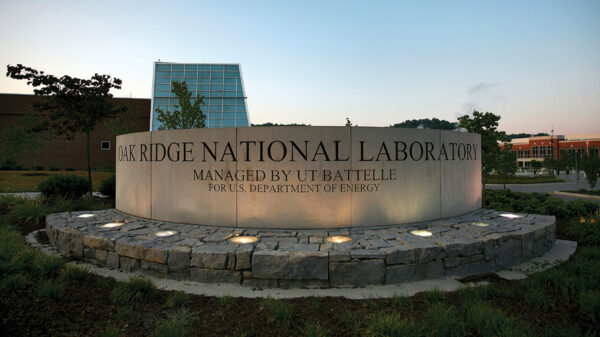NuScale Power Corporation (NYSE: SMR) reached a three-party deal with the U.S. Department of Energy and CFPP LLC.
The company disclosed late Wednesday that it reached an agreement to acquire upper reactor pressure vessel materials originally made for the Carbon Free Power Project. The purchase price comes to about USD$32.3 million.
The agreement includes a condition. If the deal does not close by October 1, CFPP will transfer the assets to the Department of Energy instead. Two years ago, NuScale and the Utah Associated Municipal Power Systems cancelled the Carbon Free Power Project. That project was set for the Department of Energy’s Idaho National Laboratory. It would have included six small modular reactors, each producing 77 megawatts, for a total of 462 megawatts.
The cancelled project still weighs on investor sentiment. Separately, Fluor, which owns 10 per cent of NuScale, sold more than 4.1 million common shares. The sales occurred between September 19 and September 23. The price per share ranged from USD$39.88 to USD$47.26, generating about USD$200 million in proceeds.
Analysts are also watching closely.
RBC Capital Markets started coverage on NuScale with a Sector Perform rating and a USD$35 price target. The bank stated it wants proof that NuScale’s partnership model can scale before upgrading its view.
Despite these market concerns, NuScale continues to promote its modular reactor technology. At the core of the company’s design is flexibility. Each NuScale Power Module is a self-contained reactor that generates 77 megawatts of electricity. Multiple modules can be combined to meet different needs. For example, four modules generate 308 megawatts, while six produce 462 megawatts. Twelve modules reach 924 megawatts, enough for large-scale applications.
Read more: Startup reimagines nuclear energy with mile-deep micro-reactor pilot
Read more: UK nuclear site set for revival as fusion fuel and medical isotope hub
NuScale promotes reactors as complement to renewables
This approach allows customers to start small and expand later. It also offers redundancy. If one reactor goes offline for service, others continue producing electricity. That makes the design more reliable than a single large plant.
In today’s energy market, reliability is a valuable feature. Many regions rely increasingly on wind and solar, which can be intermittent. NuScale promotes its reactors as a steady complement to renewables. The company highlights several design strengths. For instance, its array of independent reactors helps keep power flowing even during outages. In addition, the system can operate off-grid, making it suitable for data centers, remote sites, or industrial plants.
Furthermore, NuScale reactors include black-start capability. That means they can provide emergency power to help restart a grid after a blackout. The reactors also use staggered refuelling. Only one module needs to shut down at a time, so electricity supply remains steady.
NuScale argues that these features make its design uniquely adaptable. Communities with growing energy demand can add modules when needed. Companies with critical operations can use the technology for stability. Governments can deploy it in remote areas.
For supporters, this represents a flexible and reliable option for a low-carbon future. For critics, concerns about project delays, costs, and market acceptance remain. However, NuScale continues to advance its vision of modular nuclear power as a scalable solution in an energy-hungry world.
.














